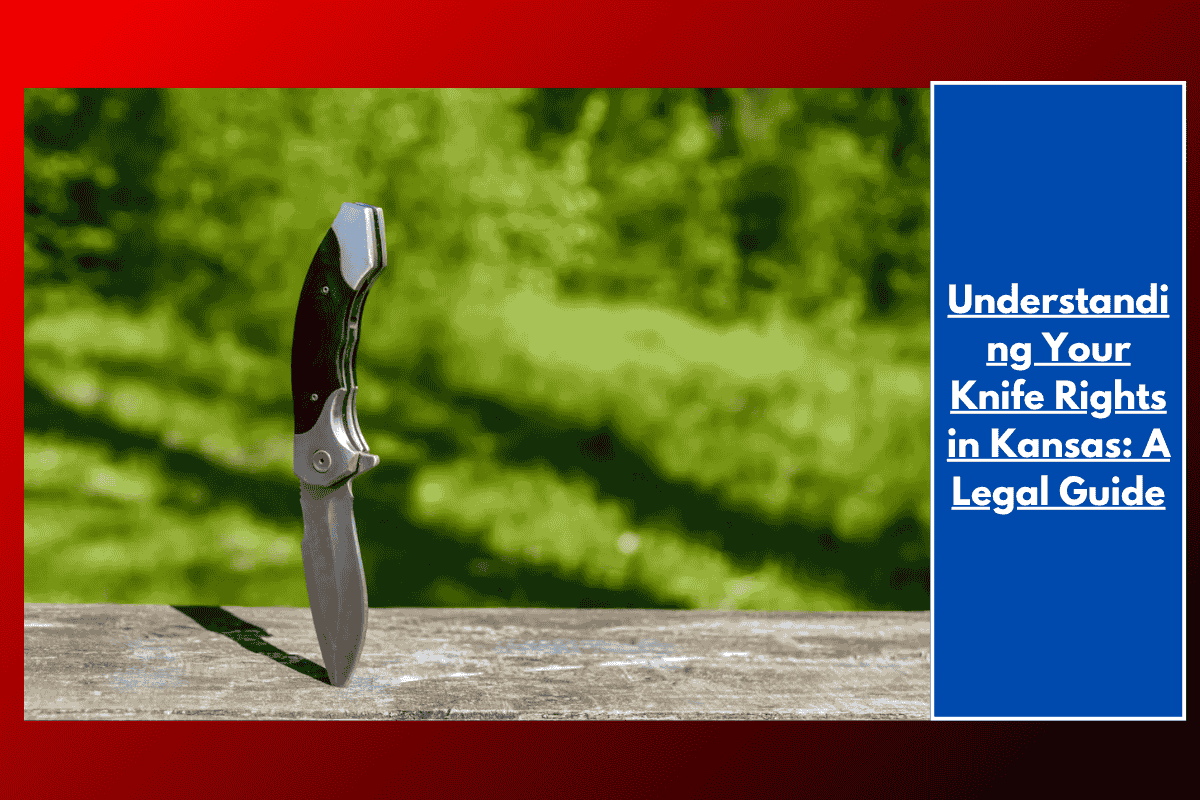In Kansas, as in many states, the laws surrounding the possession, carry, and use of knives can often be confusing. While knives are commonly used tools, understanding the rules and regulations that govern them is essential for avoiding legal trouble. This guide provides an overview of your knife rights in Kansas, helping you navigate the state’s laws effectively.
General Knife Laws in Kansas
Kansas law permits residents to own and carry knives, but there are specific regulations that restrict certain actions. The state is known for its relatively relaxed approach to knife ownership, particularly in comparison to other states. However, there are still a few important restrictions and guidelines to keep in mind.
Legal Ownership of Knives
In Kansas, individuals are allowed to own and possess most types of knives, including common household knives, folding knives, switchblades, and even daggers. However, it’s important to understand that certain knives may be subject to specific restrictions depending on the intended use and the area where the knife is carried.
Concealed Carry of Knives
Kansas has a law that allows concealed carry of knives, but there are limits to this. Generally, knives with blades longer than 4 inches may be considered illegal to carry in certain situations if they are concealed. It is essential to know the local ordinances that may restrict carrying large knives or concealed weapons, as laws may vary from city to city.
Restrictions on Certain Knives
Certain types of knives, such as switchblades or automatic-opening knives, have historically been banned in many states. However, Kansas has been more lenient with these knives, especially in recent years. As of now, Kansas law does not specifically ban switchblade knives, but it’s important to check with local authorities before carrying them in certain areas.
Where You Can and Can’t Carry Knives in Kansas
While the state law is generally permissive when it comes to knives, there are still restrictions based on where you are carrying them.
Private Property
If you’re on private property, the property owner has the right to set their own rules regarding the possession and carrying of knives. For example, businesses or homes can prohibit people from bringing knives onto their premises. Always check local regulations or ask property owners before carrying a knife onto private property.
Public Places and Schools
Carrying knives in public spaces is generally allowed, but carrying certain knives in places like schools, government buildings, or other restricted areas is prohibited. Kansas law specifically bans knives on school grounds, and the penalty for carrying a knife on school property can be severe. Additionally, knives with blades longer than 4 inches are prohibited in certain places like government buildings.
Carrying Knives in Vehicles
Kansas law permits you to carry knives in your vehicle. However, they must be stored in an appropriate place, such as in the glove compartment or in a closed container. It’s illegal to carry a knife on your person in a concealed manner if it’s easily accessible in a car, as it could be considered an illegal concealed weapon.
Self-Defense and Use of Knives in Kansas
Kansas law allows for the use of knives in self-defense, but there are important limitations to keep in mind. You may use a knife in self-defense if you’re in immediate danger and have no other means of protecting yourself. However, it’s essential to understand that the use of force—especially deadly force—must be reasonable and proportional to the threat you face.
Castle Doctrine and Stand Your Ground
Kansas operates under the Castle Doctrine, which allows individuals to use force, including deadly force, to protect themselves in their homes. This protection extends to certain areas such as vehicles or places where you have the right to be. Kansas also has a Stand Your Ground law, meaning you do not have a duty to retreat if threatened, but the force used must still be justifiable.
Knife Laws for Minors in Kansas
For minors (under 18), the laws governing knife ownership and carrying are more restrictive. Generally, minors are not allowed to carry knives in public unless they are doing so for a specific purpose, such as work or an educational activity. Additionally, minors may face penalties if they are caught carrying dangerous knives or engaging in illegal activities with knives.
Local Ordinances to Keep in Mind
While state law provides a general framework for knife ownership and carry, local ordinances can also play a significant role in determining what knives are legal and where they can be carried. Some cities or counties may have stricter laws on concealed knives, the types of knives allowed, or where knives can be carried. Always check with your local authorities to confirm the specific regulations in your area.
Kansas is generally more lenient when it comes to knife ownership and carrying compared to many other states. However, it’s important to understand the state and local laws to ensure you are staying within legal boundaries. Remember that while you are allowed to carry most knives in public, restrictions do exist around concealed carry, certain knife types, and carrying knives on school grounds or other restricted areas. Always carry knives responsibly and be mindful of local ordinances to avoid any potential legal issues.
SOURCES
[1] https://www.akti.org/state-knife-laws/kansas/
[2] https://knifeade.com/kansas-knife-law/
[3] https://edc.ninja/kansas-knife-laws/
[4] https://nobliecustomknives.com/us-knife-laws/kansas-knife-laws/
[5] https://www.seneca-kansas.us/kansas-knife-laws/














